What is a Root Canal, and What are the Benefits?
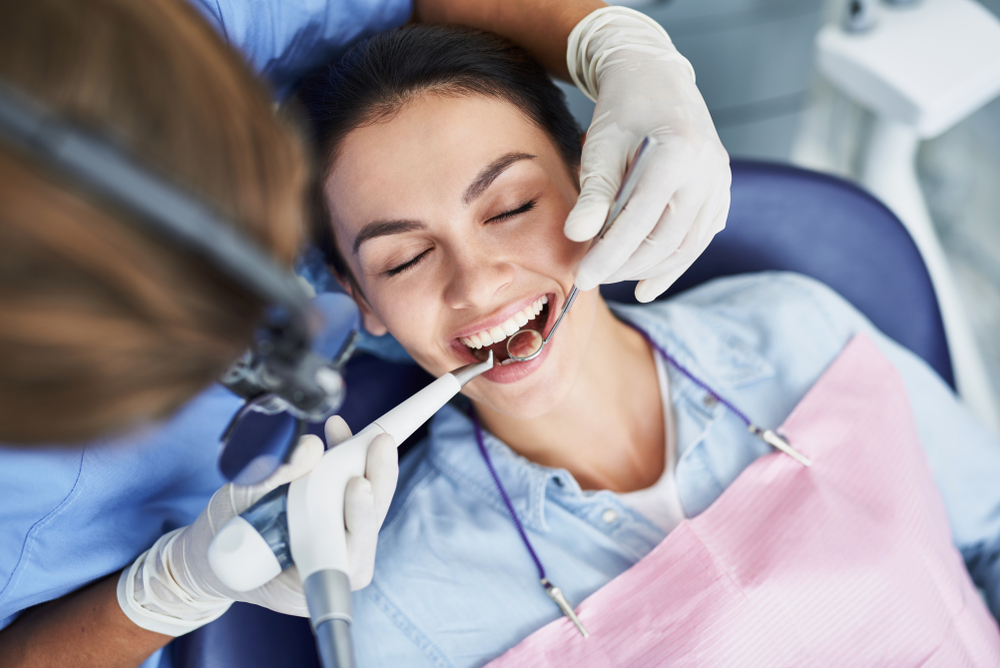
Looking for a root canal in Provo Utah? East Mountain Dental has everything you need for a perfect smile. Dr. Ryan Hamilton, Dr. Michael Roberts, and Dr. Seager are available in Provo, Utah, to provide comprehensive restorative dental care, from simple cavity fillings and root canals to advanced implant therapy and other treatments. We even offer cosmetic services such as teeth whitening and veneers, so you can leave our office with your best pearly whites! Whether it’s restoring form or function, we have the expertise to ensure you come away feeling satisfied. Schedule an appointment today at East Mountain Dental – any questions, give us a call! Root Canal Awareness Day is Coming Up As the day to raise awareness of root canals is approaching, it’s time to start talking about this important procedure! Root canals are a necessary and effective way to save teeth badly damaged by decay or trauma. Fortunately, with today’s modern techniques and technology, this procedure is entirely safe and painless for many patients. It’s time to show our support for root canal awareness day – let’s help spread a greater understanding of this vital process! Root Canals Relieve Pain and Save Natural Teeth If you’ve ever gone to the dentist and heard the words “root canal,” chances are your heart may have skipped a beat. While it’s natural to feel scared or nervous about having a root canal, it’s important to remember that at East Mountain Dental, we go out of our way to ensure all our patients are comfortable throughout their entire experience. Plus, getting a root canal could be one of the best decisions you ever make for oral health! Let’s learn more about what this dental procedure entails and why it can be so beneficial. A root canal is a standard dental procedure to repair and save an injured or decayed tooth. During this procedure, the pulp (the tissue within the center of each tooth) will be removed and replaced with an artificial material called gutta-percha. Benefits of Getting a Root Canal If you’re considering a procedure that requires artificial teeth like implants, bridges, dentures, or extractions, consider opting for a root canal instead! Getting a root canal offers many benefits for your oral health. Not only do root canals save the natural tooth in question, but they also help you keep your smile and feel more confident about it. A root canal eliminates any potential pain or discomfort you may have been feeling in the affected area. It also helps prevent further damage by sealing off any cracks or fractures in your tooth, thus preventing bacteria from entering the inner layers of your teeth. Additionally, getting a root canal allows you to preserve your smile—without one, you might need to undergo more invasive treatments. In addition, when performed by experienced dentists like Dr. Ryan Hamilton, Dr. Michael Roberts, or Dr. Seager, root canals are successful and generally followed with minimal discomfort. A single natural tooth will look better than ever before, and you’ll be able to care for it with regular brushing, flossing, and professional cleanings. Root Canal in Provo, Utah There’s no better feeling at East Mountain Dental than seeing someone walk out with a beautiful new smile after all their hard work. Our friendly dental staff and comfortable environment will ensure that every visit is relaxing and enjoyable. Plus, we use the latest technologies like advanced X-rays to get the most accurate diagnoses possible — giving you peace of mind that your treatment plan is designed specifically for you! Root canals are an excellent restorative treatment and a great alternative to more invasive methods. We understand how intimidating hearing that you need a root canal can be. But rest assured that our team is here every step of the way throughout your entire experience—from pre-treatment consultation right through post-treatment follow-ups—to ensure that all of our patients are comfortable and well taken care of throughout their entire treatment! So if you think that you may need a root canal treatment, contact us today and find out how we can help restore the health of your smile!
When to Take Your Child to a Pediatric Dentist
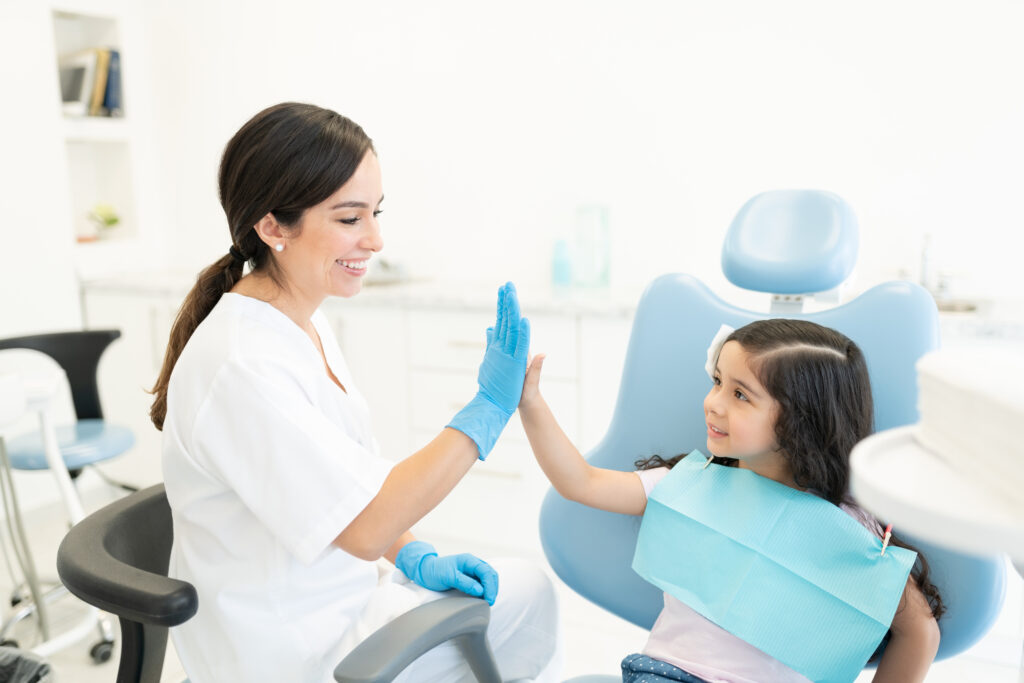
You want only the best pediatric dentist for your kids, and we provide top-notch pediatric dentist in Provo, UT. Our team is specialty-trained in pediatric dentistry, meaning we offer a higher level of service for your child’s dental needs than a general dentist. Contact us today to schedule a consultation with Dr. Ryan Hamilton, Dr. Michael Roberts, or Dr. Seager. We can help your kids stay ahead of those pesky “cavity monsters” and keep smiling brightly for a lifetime of dental health! What is Pediatric Dentistry? Pediatric dentistry means kid-friendly dentistry! We know that children can be particularly anxious about visiting the dentist, and it takes a doctor and a team with specialized pediatric training to make the dental appointments of kids run as smoothly as possible. We know how to help kids relax during treatment and enjoy their time in the dentist’s chair. We know how to explain dental concepts to children in a way that they will understand and that will be interesting to them. We take the time to get to know you and your child, which helps us best address your child’s dental needs. We love treating kids! Our quality family dentistry will show in their bright, white, healthy teeth! When Should I Take My Child to the Dentist The American Dental Association (ADA) recommends that you take your child to the dentist by the time their first tooth comes in or at around six months of age. Why so early? Though your child’s “baby teeth” will eventually be replaced by “adult teeth,” it is crucial to ensure their teeth stay healthy at every life stage. How baby teeth develop in your child’s mouth can affect how the adult teeth come in. As trained pediatric dental providers, we can spot potential dental issues before they become problematic for your child and before they require more expensive and possibly invasive treatment. And, of course, we want to help your child avoid the cavity monsters! Cavities are widespread for children, partially because children don’t tend to practice the best oral hygienic habits and tend to enjoy sweets more than they should. We can quickly treat cavities with the utmost comfort for your child, but treating cavities means more time in the dentist’s chair when they would prefer to be doing something more fun. Our Pediatric Dental Services in Provo At East Mountain Dental, we believe in preventative dentistry for your child. Preventive dentistry means we’d rather help you and your child avoid dental problems than have to treat them after they become an issue. Some of our preventative dentistry treatments include: Dental Sealants: We often recommend sealants for children, who are more prone to cavities than older patients. We use a unique dental resin to coat the chewing surfaces of your child’s teeth, providing an extra barrier against tooth decay. Fluoride Treatments: Fluoride is a natural mineral that helps strengthen tooth enamel and fight decay. Your child probably receives fluoride in toothpaste and drinking water, and we can provide an additional fluoride treatment during your dental appointments. We apply the fluoride in a specialized gel that bonds to your child’s teeth and helps ensure happy cavity-free smiles! Dental Fillings: Of course, no matter how well anyone takes care of their teeth, cavities can happen to anyone at any time. Especially children! If your child develops a cavity, don’t worry – we have them covered! We can provide high-quality tooth-colored fillings that perfectly match your child’s smile and restore their tooth to total health. The Best Pediatric Dentist in Provo, UT At East Mountain Dental, we are all about your child’s smile! Call us today to schedule a consultation with our highly trained and highly experienced family dental team. We’ll thoroughly evaluate your child’s teeth and provide some excellent recommendations to ensure they have a smile that will stay healthy and beautiful for life! We love working with kids and look forward to working with you and your family toward optimal dental health!
The Consequences of Neglecting Oral Health and Hygiene

Regarding oral hygiene, neglecting the basics can have dire consequences. Poor oral hygiene can lead to various dental problems, including cavities, gum disease, tooth discoloration, and bad breath. Unfortunately, many people only realize the importance of proper dental care once it is too late. Fortunately, Provo, UT, residents have access to some of the best general dentistry care in the nation. East Mountain Dental offers a wide range of general dentistry services, from routine checkups to more extensive treatments. The practice is run by three dentists: Dr. Ryan Hamilton, Dr. Michael Roberts, and Dr. Seager. Our General Dentists Dr. Hamilton and Dr. Roberts specialize in preventive dental care, emphasizing helping patients maintain healthy teeth and gums. Their services include cleanings, x-rays, and fluoride treatments. They also offer cosmetic dentistry, including veneers and whitening. Dr. Seager is a skilled cosmetic dentist who can help improve the appearance of your teeth. He offers a variety of treatments, including Invisalign, dental implants, and porcelain veneers. Regardless of your dentist, neglecting your oral hygiene can lead to many problems. You can avoid cavities, gum disease, and tooth discoloration with regular dental visits and a commitment to proper oral hygiene. Consequences of Neglecting Your Oral Health and Hygiene As people, we know that taking care of our teeth is essential. But unfortunately, many of us need to pay more attention to our oral hygiene and health. Neglecting them is a huge mistake, which can lead to various consequences. Here are five consequences of neglecting your oral hygiene and oral health. Gum Disease: One of the most common consequences of poor oral hygiene is gum disease, also known as periodontal disease. Poor oral hygiene can lead to a buildup of bacteria, plaque, and tartar, which can cause inflammation and infection of the gums. If left untreated, the infection can spread to the bone and lead to tooth loss. Tooth Decay: Tooth decay is another common consequence of poor oral hygiene. Neglecting to brush and floss your teeth can lead to bacteria buildup, which can cause cavities and tooth decay. Bad Breath: Bad breath, also known as halitosis, is another consequence of neglecting your oral hygiene. Poor oral hygiene and bacteria buildup can cause unpleasant odors to emanate from your mouth. Tooth Sensitivity: Poor oral hygiene can also cause the enamel of your teeth to erode, making your teeth more sensitive to hot and cold temperatures. The sensitivity can make eating and drinking very uncomfortable. Jaw Pain: Neglecting your oral hygiene can also lead to jaw pain. Poor oral hygiene can lead to gum disease, which can cause inflammation and infection of the gums. The infection can lead to jaw pain and tenderness. As you can see, there are a variety of consequences to neglecting your oral hygiene and oral health. That’s why taking care of your teeth by brushing and flossing regularly and visiting your dentist for regular checkups is important. Doing so will help ensure that your teeth and gums stay healthy and strong. Dental Checkup and Cleaning in Provo A dental checkup and cleaning at East Mountain Dental in Provo, UT, is a comprehensive and comprehensive experience. Upon arrival, you will be greeted by the friendly staff, who will review your medical history, take X-rays and conduct a thorough oral exam. Your dentist will check for decay, gum disease, and other problems during the exam. After the exam, the hygienist will thoroughly clean and floss your teeth. During the cleaning, the hygienist will use special tools and techniques to remove any food particles, plaque, and tartar buildup. After the cleaning, your dentist will apply a fluoride treatment to the teeth to help prevent cavities and strengthen the enamel. East Mountain Dental in Provo, UT, provides a full range of dental services and can help our patients maintain optimal oral health. General Dentistry in Provo Utah For residents of Provo, UT, East Mountain Dental provides comprehensive general dentistry in Provo Utah. With three highly skilled dentists on staff, patients can rest assured that they are getting the best possible care. So don’t wait until it’s too late—schedule an appointment today and start taking better care of your oral health!
8 Bad Oral Habits To Stop Immediately
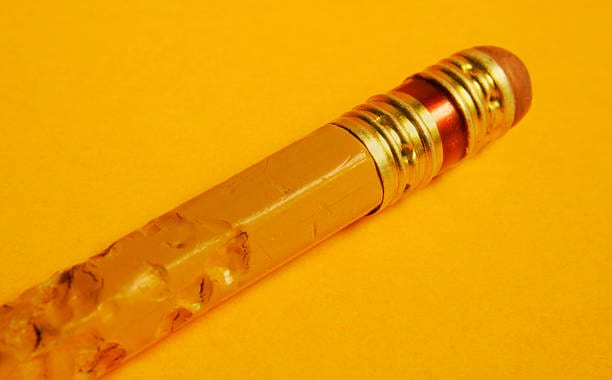
Bad habits can easily become part of who we are, but they can also really hurt us. When our bad habits affect our oral health, the results can be painful for our mouths and our wallets. Here is a list of the worst habits that can harm your mouth and should be avoided as much as possible. Smoking Smoking is one of the most destructive habits, as it not only causes discoloration of the teeth and bad breath, but can result in loss of bone density in the jaw, inflamed salivary glands, as well as gum disease, and oral cancer. Thumb Sucking Children who suck their thumbs are constantly placing pressure on their mouths and run the risk of misaligning their new adult teeth and even causing deformities in the roof of the mouth. Brushing Too Hard Vigorous brushing can irritate gums, which can cause them to recede, and can erode tooth enamel. Signs of aggressive brushing are if your toothbrush bristles are splayed and worn down. Bristles should only lightly brush against teeth and gums without causing redness. Clenching and Grinding Teeth grinding can erode enamel and can leave teeth exposed to decay. Jaw clenching can cause issues such as pain and discomfort that can lead to lockjaw and cracked and chipped teeth. Crunching Ice Our teeth are not designed for crunching ice and doing so can cause teeth to crack or chip. Grinding ice against teeth can cause your teeth to crack and chip, as well as damage the tooth enamel. Wearing down your tooth enamel leaves your teeth more susceptible to decay and it can increase their temperature sensitivity. Using Teeth as Tools Using your teeth to open containers, cut clothing tags, and rip through packages can result in cracks and chips, which can leave teeth exposed and unprotected against tooth decay. Biting Your Nails Biting your nails can damage your teeth and any past dental work, as well as expose your mouth to the bacteria that lives under nails, increasing your chances of illness and infection. Nail biting could also result in a chipped or cracked tooth. High Sugar Consumption Constantly exposing your teeth to destructive sugars, such as those found in carbonated drinks, feeds harmful bacteria and causes plaque to be produced at a much quicker rate in the mouth. Without proper dental hygiene, this plaque then turns into difficult to remove tartar, which can cause tooth and gum decay. Biting and Chewing Foreign Objects Food should be the only thing you hold in your mouth. Chewing on pencils or biting the arms of your reading glasses can damage past dental work and crack or chip your teeth. Constantly doing this can wear down teeth and make them more susceptible to damage and decay. Replacing missing or broken teeth is expensive and stressful, so if you listen to these tips, follow them every day, and take your dentist’s advice you’ll be happier for it in the long run and have a healthy mouth and smile.
Feeling Sick? Should You Cancel Your Dentist Appointment?

Whether you hate cancelling an appointment or have a dental issue and really need to see the dentist, you may need to ask yourself if it is best for you, the dental staff and other patients, to visit the dentist when you are sick. How Sick are You? If something like a headache is making you feel unwell, you are still able to make the appointment as a headache will only test your individual discomfort tolerance. However, contagious illnesses, such as the flu, is a different story. If you are coughing and sneezing, you can possibly pass your illness on to someone else in the dentist’s office. Contact Your Dentist If You Are Sick If your illness is contagious, it is best to contact your dentist’s office and let them know the situation. They can either reschedule your appointment or take other precautions to accommodate your illness. Either way it is recommended to phone and find out what their policy is regarding sick patients. If you do go for your appointment, it is important to let the dental staff know how sick you are and follow any procedures recommended by the staff. The biggest issue when visiting the dentist when you are sick is congestion. As breathing through your mouth is not an option when you are in the dentist’s chair, the experience can be uncomfortable and difficult for the patient and the dentist to efficiently do their job. Steps You can Take to Avoid getting Others Sick: Using a handkerchief or covering your mouth when coughing or sneezing Wash your hands when you arrive Carry hand sanitizer and sanitize before and after touching anything in the dentist’s office Avoid direct contact with others Tell staff you are contagious You should never cancel an appointment unless you have a good reason, as you could be liable for a cancellation fee. However, if you have a contagious illness, you don’t want to spread it. Following the above advice will give you the best opportunity to see the dentist without infecting others and be as comfortable as possible during the visit.
Facts and Myths about Cavities
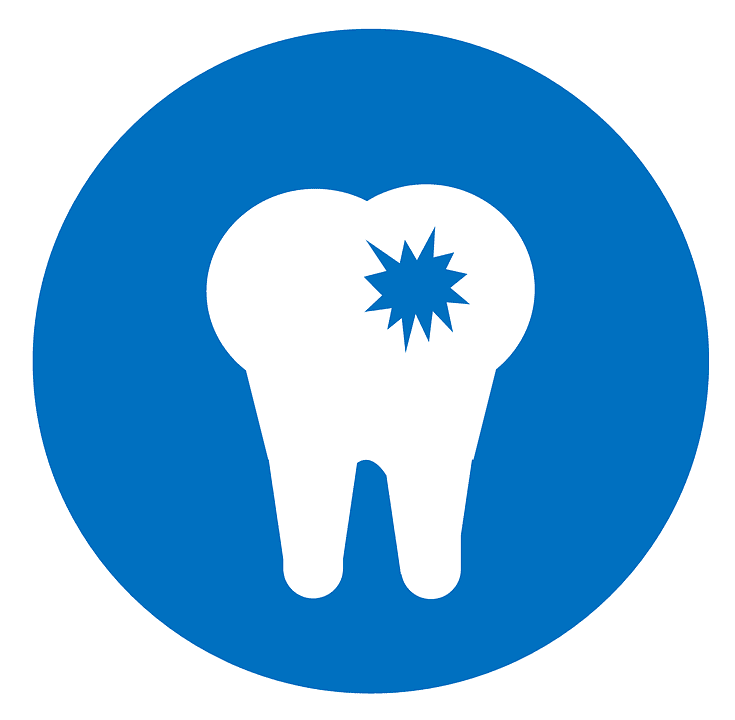
By the time we are able to brush our teeth on our own, most of us can remember being told about cavities. If you have ever needed a filling or other dental work, you may know a bit more about cavities than someone who is yet to have the experience. However, there are still some misconceptions about how we get them and what you should do about a cavity. Here are some common myths that surround cavities and the reality behind these misconceptions: Myth: If my teeth don’t hurt, nothing is wrong. Fact: By the time a tooth begins to hurt, it means the cavity and tooth decay has gone deep into the tooth and is now irritating the nerve. The longer you leave an issue, the more complex and expensive the treatment will be. Therefore, regular checkups are necessary to catch dental issues before they become extensive. Waiting for there to be an issue in the mouth before going to the dentist can mean the difference between a simple filling and a root canal. Myth: Sugar-free soda can’t cause cavities. Fact: Sugar is a huge contributor to the cause of cavities, as it creates a food source for harmful bacteria in the mouth, but it is not the only contributor. Anything that makes your mouth more acidic, such as diet sodas, can cause erosion. The harmful bacteria metabolize the sugar or acids left on your teeth and excrete lactic acid that creates small holes in tooth enamel. Myth: With good dental care, teeth can repair their own tooth enamel (remineralisation). Fact: Experts have said that teeth can replace some of the minerals that its enamel has lost. This process is called remineralisation and can slow or even stop decay. However, once bacteria and decay get through that enamel, the damage is done, and the erosion can not be reversed. The cavity has to be treated or it will continue to erode away at the tooth until it reaches the nerve. The nerve will eventually die. Depending on how long you leave a cavity, you could be looking at needing a root canal or a tooth removal. Myth: A filling is forever and can not get cavities. Fact: Although fillings can last for over a decade, they do eventually wear and break down. Tooth decay can not affect a filling but it can set in to the tooth around the edges of a filling or underneath the filling if it is broken. Myth: Cavities are for kids Fact: Anyone who has poor dental hygiene and consumes a lot of sugary food stuffs is at risk of developing cavities. Saliva is a natural buffer to all the acids in your mouth, so adults who smoke or take medications that cause dry mouth are at an even greater risk, as they have low saliva production. There is always a risk of developing a cavity, whether you are 6 or 76 years old. The important thing is to look after your dental health through daily care and regular dentist visits. At East Mountain Dental, you can be sure to get great dental care. Contact our Provo office today.
Why CEREC is Right For You
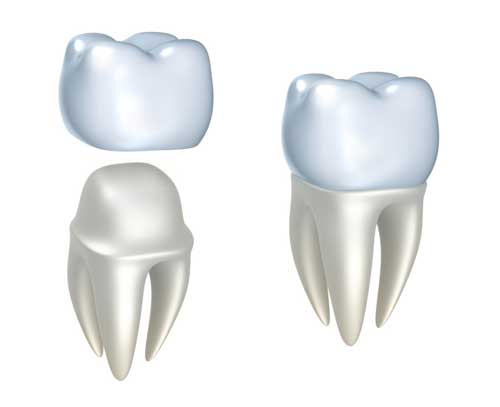
CEREC is the short term for Chairside Economical Restoration of Esthetic Ceramics, or CEramic REConstruction. This advanced technology uses computer aided design and manufacturing to quickly take dental impressions and generate perfect, custom fitted ceramics. This means if you are up for a dental crown, filling, inlay or onlay procedure, you can get everything done in one trip to the dentist office. Traditionally, multiple trips need to be made to complete the placement of a dental crown. Now, instead of sending dental impressions to a lab and waiting for the final, permanent crown before fitting, we at East Mountain Dental can create and place a crown in a single day. CEREC technology saves you time and guarantees great results. The CEREC Process Once your tooth has been prepped for the fitting of a ceramic restoration, which is done by filing and shaping the tooth, the CEREC process allows our team to use digital impressions to make a mold for the restoration. Digital impressions are more comfortable and more accurate than traditional impressions that are made with plaster. The mold is then used to create the restoration from a single block of solid ceramic materials. CEREC technology can manufacture a custom dental crown in as little as 90 minutes. The restoration is then fitted and bonded into place. Additional CEREC Technology Benefits It is not only the convenience of CEREC technology that makes it so great, but the restorations also look after your comfort and appearance. Here are 4 ways in which CEREC technology gives you the best possible restoration. CEREC technology allows people to avoid the stage of traditional restoration treatments that require patients to have a temporary restoration fitted, instead of having their permanent fixtures fitted right away. While temporary restorations fulfil the basic role of protecting teeth, they have many downsides, such as chewy and sticky foods easily damage these temporary fixes. Some people also experience discomfort while having temporary restorations removed before their permanent ones are fitted. The lifespan of CEREC restorations is longer than restorations made with traditional methods, meaning they will look better for longer. An impressive 95.5 percent of crowns made with CEREC technology survive for at least nine years after they have been fitted. The tooth shade of CEREC ceramic materials can be precisely matched to the color of your natural teeth, rendering the restoration virtually unnoticeable. The accurate fit of CEREC restorations are less likely to cause sensitivity, as most cases of sensitivity arise from restorations that do not fit correctly. Some patients also experience sensitivity during the period when wearing temporary restorations. As these are not necessary with CEREC restorations, the technology removes another possible source of sensitivity. With CEREC technology, patients enjoy the advantages of long-lasting, comfortable, well-fitting crowns, fillings, inlays or onlays. Ask our team at East Mountain Dental if CEREC technology can be used in your next restoration procedure.
What is Endodontics?
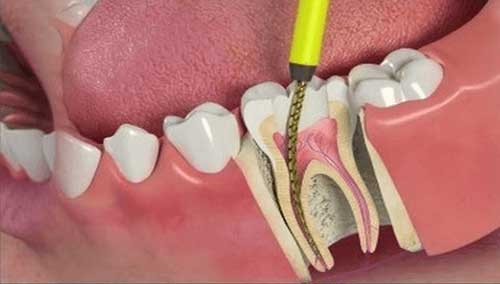
Endodontics is the branch of dentistry that focuses on the care, diagnosis and treatment of dental pulp and tissues surrounding the roots of a tooth. What is Dental Pulp? Dental pulp sits inside your tooth, covered by layers of specialized bone, connective tissue and enamel. Our dental pulp is filled with blood vessels and nerves that connect the tooth through its roots to the rest of the mouth. Why is Endodontics Important? It is important to keep the dental pulp of a tooth healthy because it is responsible for the blood flow to the tooth, the creation of one of the layers of the tooth (dentin), and provides a sensory function, such as a reaction to differences in temperature. The infection and decay of dental pulp can lead to severe pain and the death/removal of the tooth. What Procedures Does an Endodontist Handle? Endodontists perform root canal treatments, address traumatic dental injuries, and place dental implants. The real goal is to save your natural teeth, but if this is not possible, an endodontist will look for the best course of action to preserve and restore your dental health. When To See An Endodontist? If you’re experiencing tooth pain, have injured your tooth, experience extreme sensitivity to hot or cold food items, and/or have swelling around the teeth, gums or face, then you should make an appointment to see your dentist. Your dentist may then refer you to an endodontist for specialized treatment. Trust in East Mountain Dental’s Endodontics At East Mountain Dental, we are able to evaluate and treat your endodontic-related problems. By saving your tooth, we can help you keep your smile as natural as possible, which allows you to continue eating your favorite foods and maintain your overall dental health.
What is Dental Bonding?

What is Dental Bonding? Dental bonding is the application of a tooth-colored composite resin, much like a plastic, to the teeth. It is applied to repair decayed, chipped, fractured or discolored teeth. Bonding can be done in a single dentist visit as it does not need to be manufactured in a laboratory or need a customized mold. What is Dental Bonding Used For? It is an easy and inexpensive cosmetic dental procedure, which can improve the appearance of discolored or chipped teeth. It is also used to fill in gaps between teeth, and can be used to modify the shape or length of teeth for cosmetic purposes. The composite resin can be shaped and polished to match the surrounding teeth for the perfect finish. Dental bonding has also been used as an alternative to amalgam or metal fillings since the composite is able to blend in with the rest of the patient’s natural teeth for a more appealing smile. Another use is the application to protect a portion of a tooth’s root that has been exposed as a result of receding gums. How is Dental Bonding Applied? Anesthesia is not necessary in this process unless the bonding is being used to fill a decayed tooth. There is no extra preparation that needs to be done before this dentist appointment. In the appointment, your dentist will use a color guide to select the composite resin that will match the natural color of your teeth. The dentist will then slightly etch the surface of the tooth to make its surface rough and then coat the tooth in a conditioning liquid. This is so the composite resin will stick to the tooth. When the tooth is prepared, the tooth-colored, putty-like resin will be applied. The resin is molded and smoothed into its proper shape. An ultraviolet light or laser is then used to harden the material. Your dentist will further trim and shape the bonding once it has hardened. The tooth will then be polished until the bonding matches the natural sheen of your teeth. The whole process can take between 30 minutes to an hour, depending on the amount of work that needs to be done. If you’re having more than one tooth done, you may need to schedule different appointments. What to Avoid After a Dental Bonding Procedure Substances, such as tea, coffee and cigarette smoke can stain the dental bonding resin and should be avoided to maintain the resin’s original color. To prevent or minimize stains, avoid eating or drinking foods that can stain for the first 48 hours after any composite procedure. Patients should continue to brush their teeth twice a day, maintain a good oral hygiene regime and have their teeth cleaned regularly by a dental hygienist to ensure the dental bonding lasts as long as possible.
Try these Foods for a Whiter, Brighter Smile!
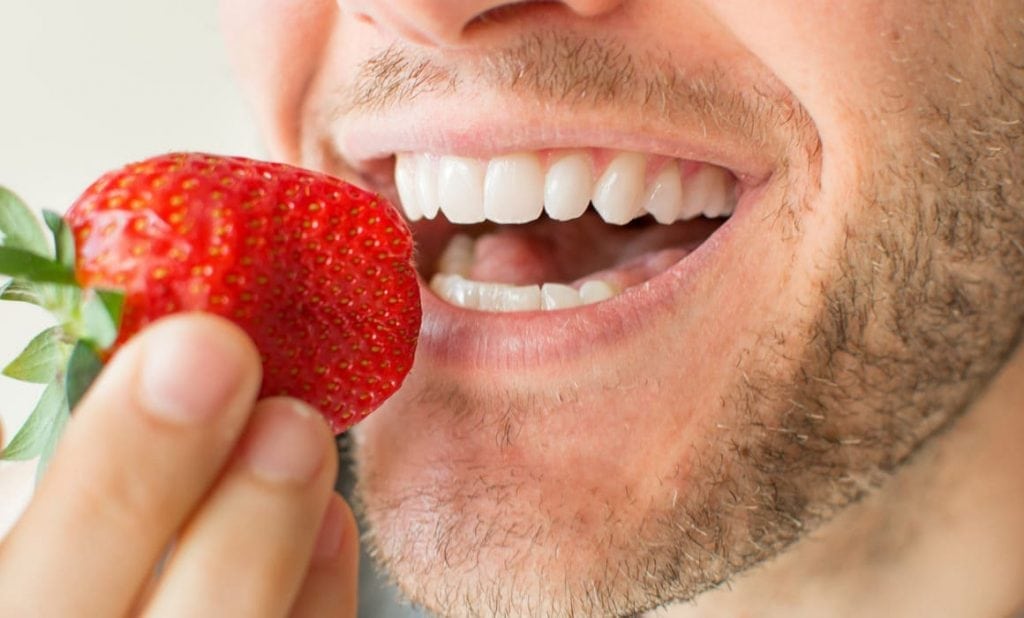
Try these Foods for a Whiter, Brighter Smile! We all know that wine, tea, coffee and sodas can discolor and stain our teeth. Most people are unwilling to give up their coffee or soda addiction and could not possibly think of starting their morning without coffee or have a meal without a soda. Luckily, like most things in nature there is a balance. Whereas these liquids can stain your teeth, there are foods that can be eaten to whiten your teeth. So although it may be a good idea to cut down on your coffee or soda intake to prevent stains, these foods can work as an extra combatant against discoloration. Teeth whitening foods: An apple a day not only keeps the doctor away, but can also keep you away from having your teeth whitened at the dentist. Apples, celery and carrots increase saliva production in the mouth. Since saliva is the mouth’s self- cleaning agent, these foods make sure it is not in short supply and their crunchy texture helps scrub teeth. The acidity in oranges and pineapples is just enough to act like a mouthwash. These fruits also stimulate saliva production. Yogurt, milk and cheese contain lactic acid that protects the teeth from decay, which can cause discoloration in teeth. Proteins in yogurt attach themselves to the surface of teeth to protect them from acids that cause cavities. Hard cheeses are also great for teeth whitening and they help remove stray food particles in the mouth. Strawberries contain malic acid that whitens teeth. You can turn strawberries into a paste that you can place on your teeth. Leave the paste on for five minutes before rinsing it off and then brush and floss as usual for whiter teeth. Seeds and nuts have an abrasive texture that works as an exfoliator for your teeth. High fiber, coarse foods, such as broccoli, act as a scrubbing agent. These foods can be used to remove and prevent stains on the exterior of the tooth, which is normally called extrinsic whitening. If you try the above foods or other extrinsic whitening products, such as a teeth whitening toothpaste, and you are not getting the results you want, it could be because you have intrinsic discoloration. Intrinsic whitening deals with the whitening of the interior of the tooth. Age, genetics, acidic foods, smoking and even medications slowly discolour the dentin in our teeth. Dentin is a layer of calcified tissue underneath our tooth enamel. Teeth discolouration is a natural process, however, the above mentioned factors and tooth decay can speed up the process. This is why intrinsic teeth whitening treatments, such as bleaching gel are available. Most intrinsic procedures have to be administered at a dentist’s offices. To figure out what is the best teeth whitening treatment for you, speak to us at East Mountain Dental.
